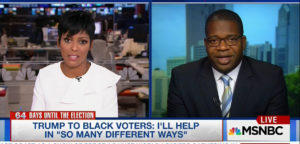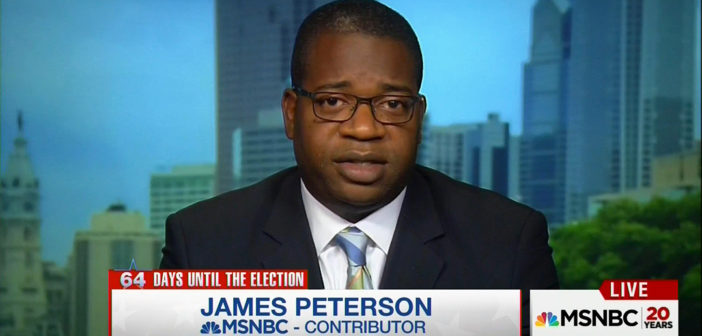In the past several months, there have been many tragic events in the news related to racial tensions and police violence. As a result of these incidents, the issues of racial inequality and police brutality are increasingly being featured in the media. These national issues have also sparked discussion in Lehigh classrooms across various disciplines.

Courtesy of James Peterson
James Peterson, the director of Africana studies and an associate English professor, researches black popular culture and black political discourse through hip-hop culture.
Peterson’s goals in his classes are to leverage students’ interest and investment in popular culture and to have students think critically about important public political and social justice issues.
Peterson believes racial inequality and police brutality are the most challenging and complex issues facing our nation today. He said he hopes by discussing these issues in class, students will change their perception about critically engaging political issues through texts, songs and comics.
“The community we are in requires institutions to be accountable to that community,” Peterson said. “Lehigh is a very wealthy institution in a lot of different ways and we are situated in a post-industrial city in America. I feel like our responsibility to the residents of South Bethlehem is just as great as Bethlehem Steel’s responsibility was to the residents of Bethlehem. Whether or not we can rise to that challenge, I think, has to fall not just on administrative leadership, but also (on) the (campus) community.”
Peterson said one way to help the community is through the $500,000 National Endowment for the Humanities grant the Africana studies program received for faculty to support community programs by speaking at schools, churches and town meetings.
Understanding the experiences of different people is the gate to bridging the gap in our local community, Peterson said.
“Making sure that people know in the community, that when Africana studies is doing an event, the community is welcome to come onto the campus to learn from the faculty and learn with our students in a way that shows that we are genuinely invested in our community,” said Peterson. “The two-way piece is key.”
Holona Ochs, an associate professor of political science, also incorporates discussion in her classroom dynamic. Ochs’s research focuses on social control rather than empowerment.
Ochs implements her findings in classroom discussion because she believes it is important to introduce students to topics which they are largely unaware, including things such as racial inequality and police brutality.
“Exposing students to the experiences of others and showing them why they should care about these patterns of practices of marginalized people is the most important thing that they learn about these perspectives,” Ochs said.
Sirry Alang, an assistant professor of sociology and anthropology, also sparks this sort conversation in the classroom. She researches health services and specifically focuses on the effect of race on health.
Alang includes her research findings in her lectures and aims to educate students on why minority communities — such as African-Americans, Latinos and Asian-Americans — are likely to die younger due to the stresses of racism.
In Alang’s Intro to Public Health class, students write a reflection paper on how they are perceived through their racial identity, gender, socioeconomic class, previous economic experiences and how all of these aspects affect their health. The paper is designed to make students think critically about how their experiences affect their happiness and how they relate to those who are different from them.
As an institution, it is important to hold these conversations in the classroom to truly understand our world today, Alang said.
“Some people can’t opt out of these conversations — this is their lived experience,” Ochs said. “By not acknowledging these issues, we are further marginalizing people who don’t have any other options. Learning to listen and be in difficult conversations is an important part of the educational process, but also the beginning to addressing some of these injustices.”
The more issues of racial inequality and police brutality that professors, students and the administration bring to the forefront, the more of an impact they can make on the Lehigh community.
“Lehigh has made some great strides over the last several years we should acknowledge: We diversified our faculty and student body, and responded to some critical crises in progressive ways,” Peterson said. “We have made some strides, yet we have a long way to go and my philosophy for that is, let’s be proactive and not reactionary. Let’s figure out what programs we are going to do, goals for hiring. Let’s figure out how to be a global community.”






Comment policy
Comments posted to The Brown and White website are reviewed by a moderator before being approved. Incendiary speech or harassing language, including comments targeted at individuals, may be deemed unacceptable and not published. Spam and other soliciting will also be declined.
The Brown and White also reserves the right to not publish entirely anonymous comments.